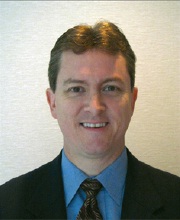Managing Director of Advantage 24
with Poppy Calvert
Advantage 24 aims to provide the best possible outsourced hosting solutions for clients so they can turn focus on their primary business objectives. Located at Shinagawa, in central Tokyo, Advantage 24 offers Service in English to clients in Japan at competitive rates.
“Your contacts are some of the most valuable
resources you have. How you go about building
those relationships and maintaining them
is extremely important.”
How long have you been in Japan?
I moved to Tokyo as a student in 1985. My first impressions of Japan were impressive. It was during the later years of the bubble era and Japan was in full booming mode, which was really interesting. AI the time, I lived out in Saitama, a prefecture next to Tokyo, it was still rare enough at that time for non-Japanese to be out and about that little children on the street would shout. “Gaijin! Gaijin!‘” It was different, but a great experience. I learned a lot and it made me want to come back again. Once I’d graduated from university in the States I moved to Japan literally two weeks later.
Could yon tell us a bit about your company?
My business partner Terry Warren and I started the company in 2007. We specialize in providing businesses with infrastructure as a service.
We have developed a cloud computing platform. Vantage Point, using some of the latest visualization and super computing technology on the market. Part of the appeal of cloud computing is that the service is very scalable, making the system relevant to gaming companies, finance companies, in fact any company that wants to streamline and better manage their infrastructure. The benefits include significant operating cost reductions, zero capital costs, and speed of deployment. Servers can be ordered online and are available within 60 minutes.
Cloud computing gives us capabilities not just in Tokyo but across the whole Asian region. I suppose looking at us as a ‘cloud-service provider’ would be the best way of putting it.
What are the Japan-specific challenges you face in your day-today work?
Well, of course, trying to build systems in Japan means that we have to be bilingual and bicultural. We are working in a very new and cutting edge area, which is a little bit different compared to how businesses have traditionally purchased computing resources. Here we are promoting computer resources as a utility similar to water or electricity; things you can turn on or off when you need them.
The concept is a little more developed in some foreign countries compared to Japan so this is a real opportunity Tor us as well as a challenge. We have the opportunity to get into the market and build up our service before some of the larger international players come in.
What kind of advice would you give to aspiring professionals here?
Firstly, language is key. You can be successful here without speaking Japanese, but it is an extra hurdle that you put in front of yourself. Gaining some level of proficiency is something that I would recommend and to always be understanding of cultural differences.
Secondly, the human network. Your contacts are some of the most valuable resources you have. I low you go about building those relationships and maintaining them is extremely important. You should bear in mind that business relationships in Japan tend to be based around long-term thinking. I have found that my Japanese contacts that I have taken care of have continued to be there for me lime and time again.
What do you do for fun in Japan?
I’m involved in a group called Craft. Mostly we’re a group of foreign guys in our thirties and forties. We like to get together to play golf but we also do some charity work. Every month we have a dinner and everyone pays a certain amount. We have a deal with the restaurant and whatever is left at the end of the night we give to charity. We raise around three million yen a year. It’s our way of giving back to the community and it’s also a lot of fun.









